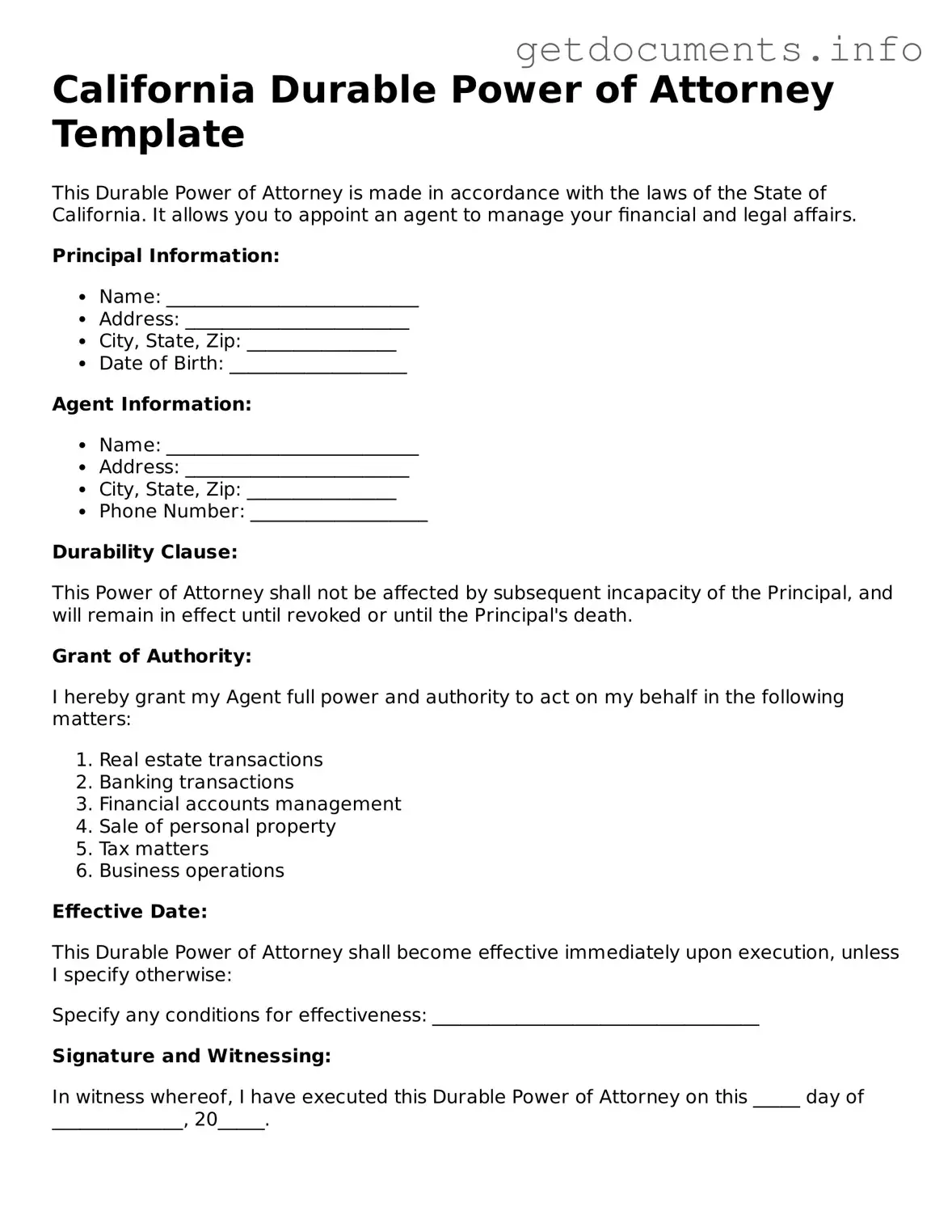Free Durable Power of Attorney Template for California
A California Durable Power of Attorney form is a legal document that allows you to appoint someone to make decisions on your behalf if you become unable to do so. This important tool ensures that your financial and medical affairs are managed according to your wishes. To take the next step in securing your future, consider filling out the form by clicking the button below.
Access Durable Power of Attorney Editor

Free Durable Power of Attorney Template for California
Access Durable Power of Attorney Editor
Got places to be? Complete the form fast
Fill out Durable Power of Attorney online and avoid printing or scanning.
Access Durable Power of Attorney Editor
or
⇩ PDF File
